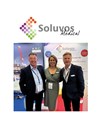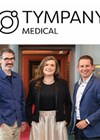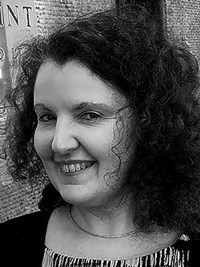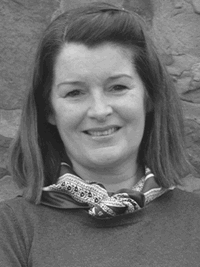
Industry News
PhysioSensing OtoneuroSystem: advancing objective vestibular assessment and rehabilitation
PhysioSensing OtoneuroSystem represents a new generation of technology for vestibular assessment and rehabilitation, empowering clinicians to see balance in a completely new way. By combining high-precision inertial sensors, force plate and VR, with intelligent software, the system transforms complex postural...
Interacoustics launches 2026 training program: Learn online or in person
Interacoustics Academy is proud to present its 2026 educational lineup, offering audiology and balance professionals the flexibility to learn anytime, anywhere. The online course program includes both key topics such balance diagnostics and rehabilitation, Trends in Paediatrics (ABR) and tympanometry...
Soluvos Medical wishes ENT & Audiology News readers an awesome New Year!
The year has passed by so quickly but the Soluvos team is ready for next year’s meetings and courses, and hopes to see you at: 14-17 Jan ’26 Winter Days of Laryngology, Crans, Switzerland 19-20 Jan ’26 Winter Laryngology Unilateral...
Medency Launches RAPIDO ENT BLUE Laser in Jordan with Robotech Medical Support
Amman, Jordan – On December 3, 2025, Medency marked a significant milestone in the Middle East ENT market with the official launch of its RAPIDO ENT BLUE Laser at the Landmark Hotel in Amman. Partnering with local distributor Robotech Medical,...
Hearwell Medical Philippines Showcases Innovation at the 69th PSO-HNS Convention
Hearwell Medical Philippines was honoured to participate in the 69th PSO-HNS Convention, held at Space @ One Ayala, Philippines, from 2–4 December 2025. The company was pleased to present the latest technological advancements in hearing aids and audiology solutions, while...
Support for dizziness & balance disorders
The Ménière’s Society is excited to announce they have changed their name to Ménière’s & Vestibular UK. This change is an important step to ensure the charity’s name represents everyone they support. Ménière’s & Vestibular UK provides essential support and...
Share your perspective on improving reflux care pathways
BIOHIT HealthCare recently brought together leading ENT specialists and speech and language therapy professionals for a roundtable discussion on the complexities of diagnosing laryngopharyngeal reflux (LPR) and extraoesophageal reflux. Key themes included the lack of consensus around LPR as a...
VARTA Showcases Comprehensive, Sustainable Battery Range at EUHA 2025
VARTA AG presented its comprehensive range of energy solutions for the medical hearing sector at EUHA 2025 last week, the world’s largest trade event for the hearing aid industry. Operating under the motto "Empower Your Hearing", the company showcased its...
Hearwell Medical showcases ENT innovation in Indonesia
In July, Hearwell Medical Indonesia was pleased to collaborate with PT Hearing Vision at PITO XIV – the 14th Indonesia Annual Otology Scientific Meeting, held in Jakarta, Indonesia. The event provided an excellent opportunity for Hearwell to showcase its RESONANCE...
Puntolab Audición and AUDYO shine at SEORL-CCC 2025
Puntolab Audición and AUDYO were thrilled to participate in the 76th National Congress of the Spanish Society of ENT, held in Madrid from 22–25 October 2025. (L-R): The three heads of service of the hospitals in the Canary Islands, Drs...
Puma S.r.l. at 69th EUHA International Congress
The 69th EUHA International Congress took place in Nuremberg from 22 to 24 October, bringing together leading experts in the field of audiology. Puma S.r.l. actively participated with its own stand, where it presented, as a preview, the new PRO28F...
From Irish innovation to Global impact: Tympany Medical seeks investors
Irish MedTech pioneer Tympany Medical has launched a €600,000 crowdfunding campaign via Crowdcube under the Employment and Investment Incentive Scheme (EIIS), offering a 50% tax rebate for Irish taxpayers. The campaign invites both seasoned and first-time investors to back innovation...

















